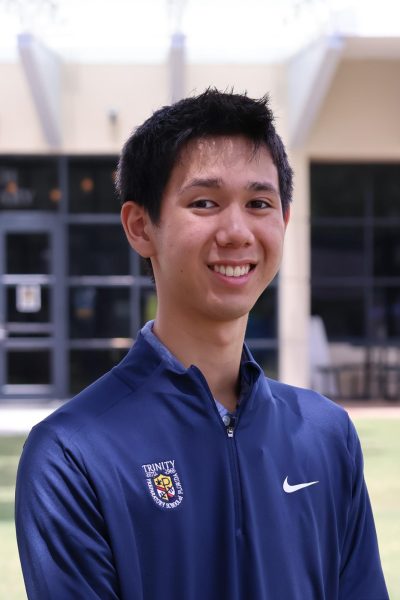At some point in all students’ lives, they have dreamed of becoming the best at what they love, whether it be the next great astronomer or the next great author. In a world of seemingly infinite career possibilities, never has it been harder to actually achieve a dream career. Nowadays, the race to get into college and climb the ladder of success is unbelievably competitive. According to a blog from Spark Admissions, Columbia University has a 5.1% acceptance rate today compared to a 32.3% acceptance rate in 1990.
One of the most effective ways for a student to stand out is by having a rigorous schedule full of AP classes and other accelerated courses. Having this kind of schedule during middle school or ninth grade helps them not only stand out but also excel at their strengths and unlock their potential.
Unfortunately, most middle schoolers and ninth graders are not able to take many AP classes. According to a report from the College Board, only about 0.3% of AP students were middle schoolers and 9.1% of AP students were freshmen, 60% of which came from AP Human Geography. These numbers are too low. Trinity should make more AP classes open to younger grades.
According to a 2019 College Admission Report, 80% of schools surveyed listed strength of curriculum as important for admissions. Students who take AP courses signal to colleges that they are serious about their schoolwork and are willing to challenge themselves with tougher courses.
With increasing college admission demands, schools including Trinity are providing more opportunities for students to take advanced classes. Here at Trinity, ninth graders now are able to take multiple AP classes, as well as take math classes that are two or three years ahead of the average ninth grade curriculum. This is a start, but there still aren’t enough AP classes being offered to freshmen. Also, pursuing a math-based career such as engineering requires an extensive amount of math knowledge beyond Calculus AB and BC.
Eighth grader Ashwin Anand is currently taking Honors Precalculus and dreams of eventually taking his passions to Massachusetts Institute of Technology (MIT).
“For most of my life, I’ve loved math, and that’s really what drove me to start taking more advanced courses,” Anand said. “The school that I really want to get into is MIT, and that’s probably going to be really tough. But I feel that taking a lot of math courses and participating in math competitions will help a lot.”
Taking harder classes can also help students develop important life skills. According to the AP College Board, because of the demanding workload, AP students learn essential time management and study skills needed for college and career success. Even small advantages like this make a difference in the eyes of college admission officers and even potential employers.
When a student is looking to develop their talents and challenge themselves, advanced courses can be used to their benefit. If the student is passionate about a certain subject, being in an advanced class can be a good challenge rather than being stressful. Freshman Joshua Whitney is passionate about computer science and is currently taking AP Computer Science. He enjoys the advanced class because he believes it challenges him more than a regular class would and allows him to further his knowledge on the topic.
“Probably around 20-30% of my schoolwork time is devoted to my two AP classes,” Whitney said. “Not really more than another class.”
While taking an advanced course doesn’t automatically mean you become successful, it can help students’ chances in college and their careers and help them fulfill their passion. Right now, there are only a few AP classes that are open for ninth graders or middle schoolers, which is why more AP classes should be available to them.
Director of Learning and Instruction Stephanie Dryden is a strong advocate for students who are taking classes above the norm.
“It’s always exciting when a student pushes themself in math, journalism or music, and it’s a great thing to have those opportunities here,” Dryden said. “I think that’s a really positive thing.”










